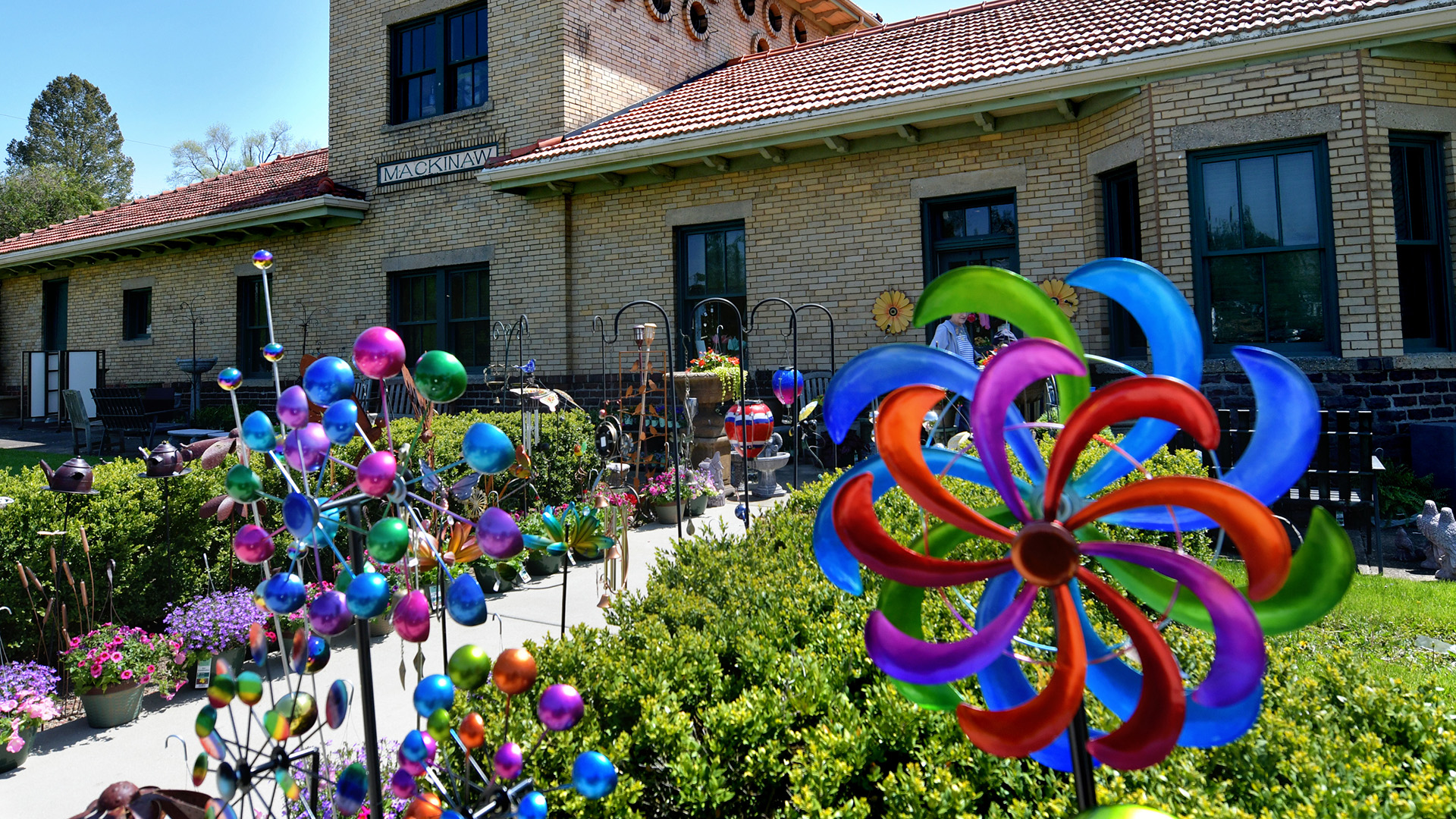It may be “on the way to nowhere” but it’s well worth the trip
Mackinaw is not the smallest of small towns in Tazewell County. But as small towns go, this village of 1,800 plus is an exception to many of the small-town rules.
While some towns this size have lost their local schools, grocery stores, restaurants and other core businesses, Mackinaw has all of those and other amenities including a pharmacy, manufacturing, a fish and wildlife area and a “suburb.” In fact, while no one was watching, Mackinaw seems to have transformed itself from a quiet farm community with a rich past to a destination for shoppers, diners and visitors from across the region.
It’s all rolled into a friendly, welcoming place that even a dyed-in-the-wool Mackinaw resident and business owner like Beth Wiegand admits is “on the way to nowhere.” And yet plenty of people are finding their way to Mackinaw’s unique charms.
Nearly 200 Years in the Making
Mackinaw goes back to 1827 when the first Tazewell County Courthouse, basically a log cabin, stood not far from the current Village Hall. Records show that Mackinaw was the proposed name for the entire county until outside political factions forced a change. By 1831, county government had moved west to Tremont, and then on down the road to Pekin.
It is generally agreed that the town takes its name from Chief Mackina or Mackinac of the Kickapoo tribe of natives. Some say it means “little chief” (hence the name of school mascots). Others say it means “turtle” (Go Fighting Turtles!). Just north of town is the Mackinaw River, once called the Michilimackinac, which empties into the Illinois River south of Pekin.
A time capsule from 1977 rests beneath a marker in Veteran’s Park, waiting to be opened at the bicentennial in 2027.
Committed to the Community
Like any Midwestern town of the 19th and early 20th centuries, Mackinaw once had every imaginable type of business, from grist mills and hotels to blacksmiths, general stores and saloons.
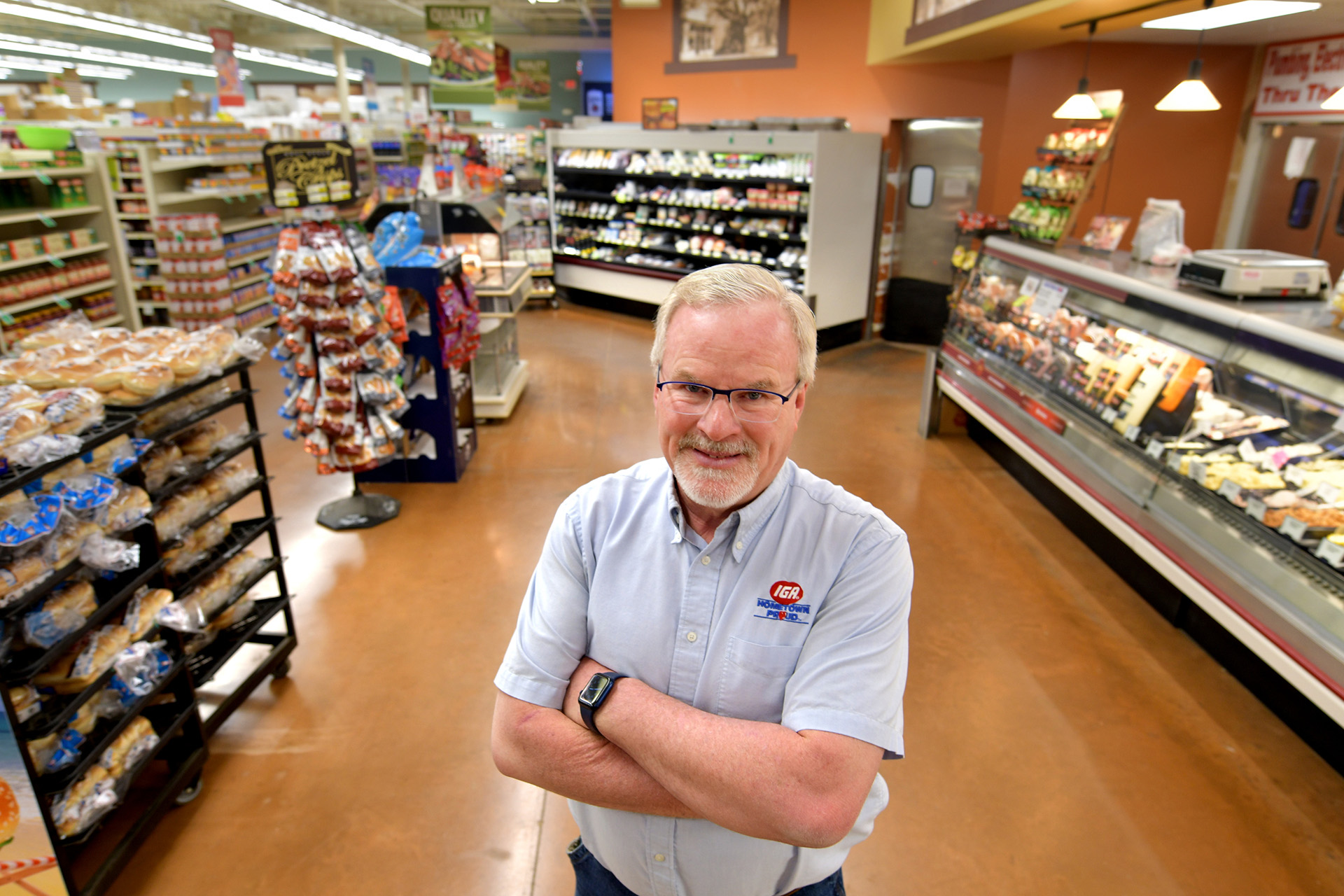
An anchor of today’s business community is the Mackinaw IGA — a steadfast survivor amid the Walmarts and big box retailers that have weeded out so many local merchants. Owner Brett Zehr has kept his market strong and vital for 29 years, surviving recessions, demographic changes, a pandemic and a devastating 2008 fire.
To anyone else, the fire might have been a fatal blow. But the now 62-year-old Mackinaw native rebuilt and was back in business within a year.
“I knew that if I didn’t rebuild no one was going to put a new store in a small community like Mackinaw,” Zehr said.
“I can’t buy stuff as cheap as what Walmart sells it for,” Zehr admits. “It’s impossible to compete with them” on that level. He said residents shop the IGA for convenience and its “friendly, helpful” employees.
The store specializes in quality meats “and we have a very good deli,” he said. Space was given over to basic hardware supplies — electrical, plumbing, nuts and bolts, furnace filters — after the local hardware store closed.
Zehr said his first job in fifth grade was stocking shelves for $1.85 an hour at an earlier iteration of the store. “I’d love to work until I’m 70,” he said with a laugh.
An End to Prohibition … Finally
It wasn’t until Prohibition ended in Mackinaw in 2012 that the popular Haynes on Main restaurant could open shop in a former drugstore on Main Street. Of course, Prohibition ended elsewhere in the country in 1933, but for reasons that many can’t (or won’t) explain, the town remained dry — no alcohol sales within village limits — for another 79 years.
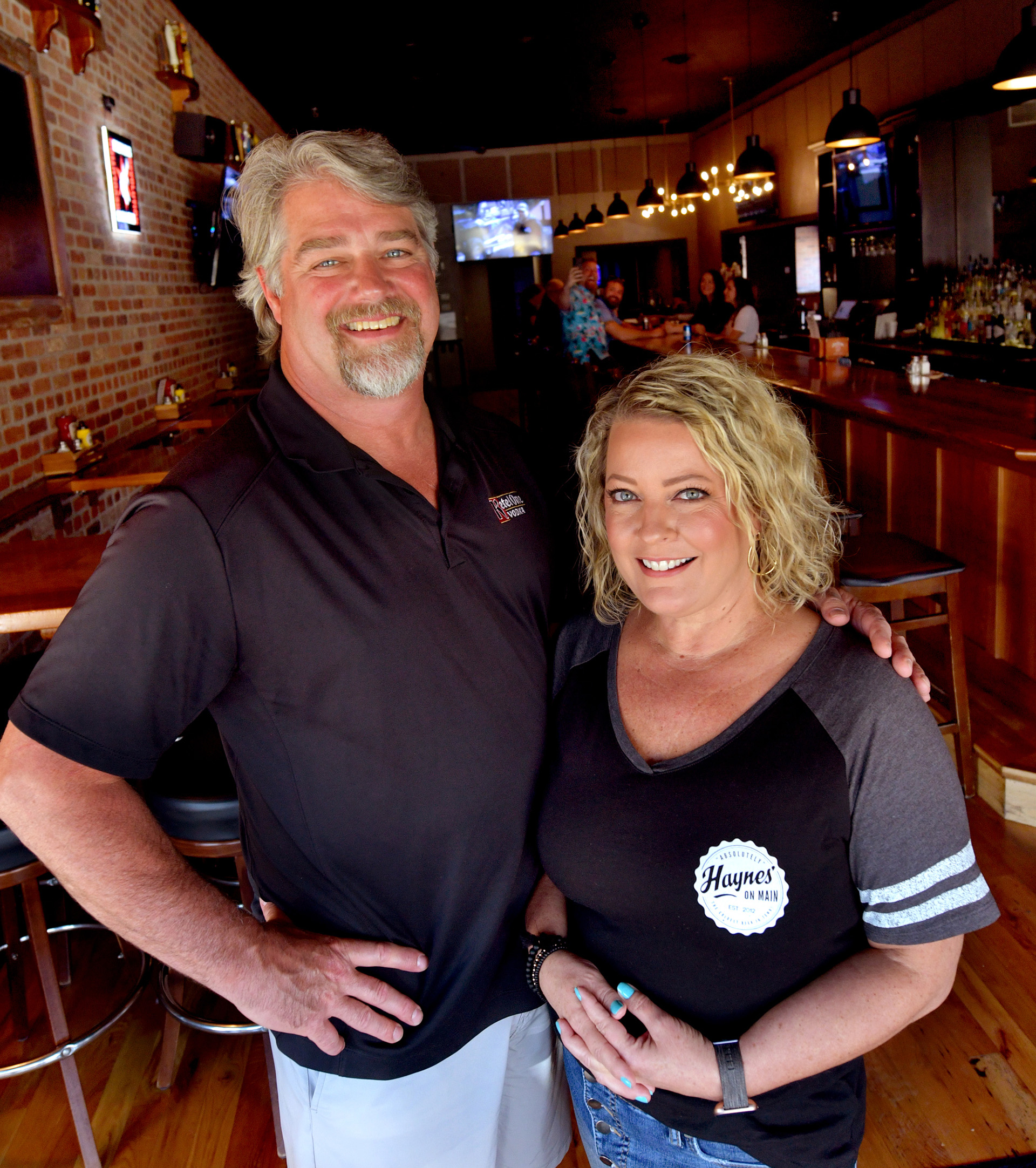
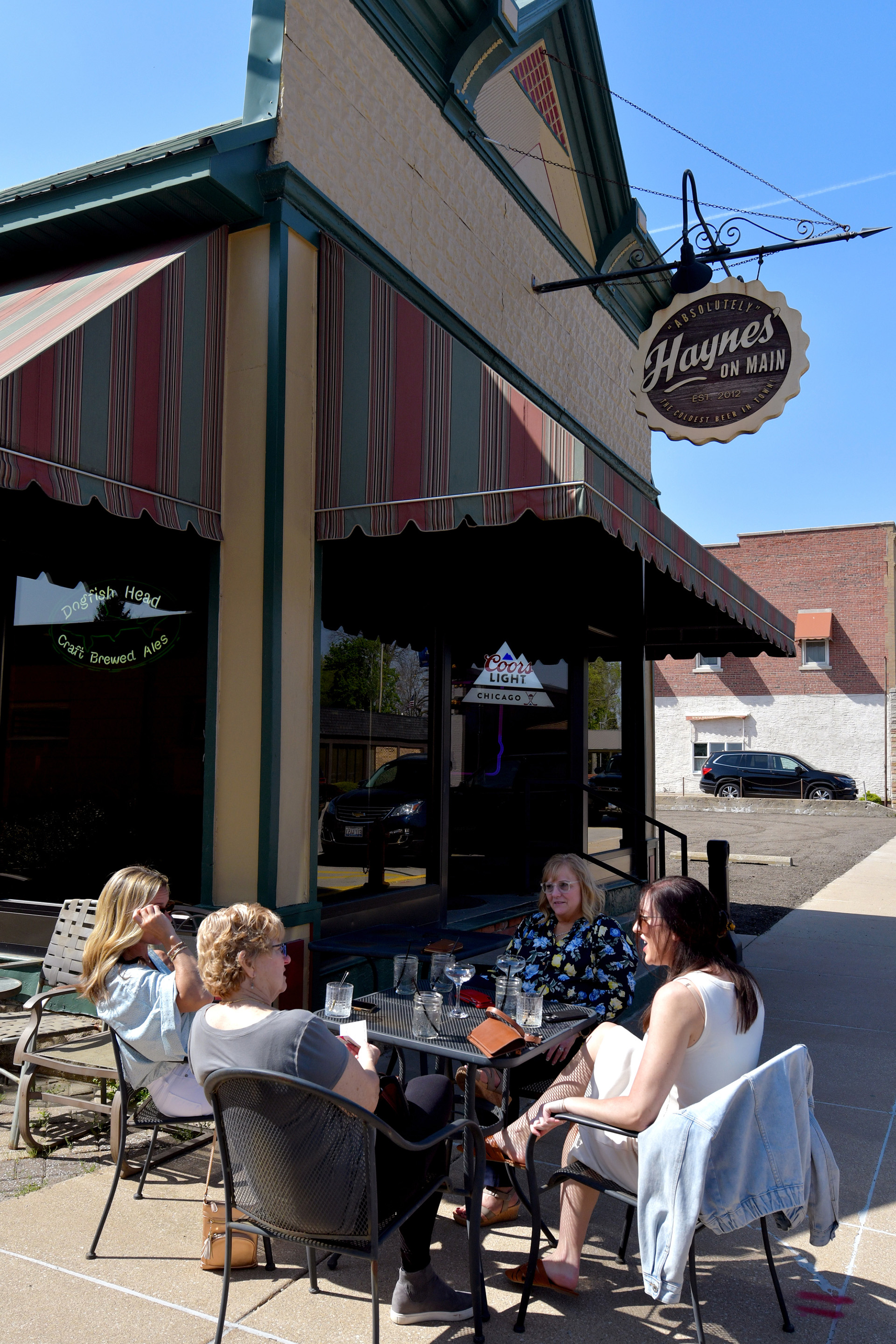
To be clear, residents who were inclined to imbibe could still get a beer and a bump at several taverns just outside the village limits. But when the ban was lifted, Carol and Patrick Haynes said they thought, “Maybe we should do something before someone else does.”
That something was the now decade-old establishment offering what Carol Haynes calls “upscale pub food … better than what you could get at your average small-town pub.”
Fourteen tap handles dispense a variety of brews. Wine and liquor are also available. Last year’s addition of a four-season beer garden greatly expanded the seating area. Live music is featured most Sunday afternoons.
On any given night, Carol said only about 25% of customers are local, the rest from surrounding towns as far away as 30 miles.
With nearly 30 full and part-time workers, Haynes on Main could be considered a major employer. “We’re super happy with where we are now,” Carol Haynes said.
Mackinaw supports other eateries within shouting distance of each other, namely Mackinaw Family Restaurant, Eddy’s Kitchen near downtown, and Pub 52 in the Mackinaw Industrial Park. Eli’s Coffee occupies a former bank building on Main Street.
Preserving the Past
Head north on Main Street to find the Mackinaw Depot, home to a tearoom and gift shop in a restored station of the Illinois Traction System, the regional electric passenger and freight line that from 1909 until 1953 connected small towns across the state to Peoria, Bloomington, Decatur and Springfield.
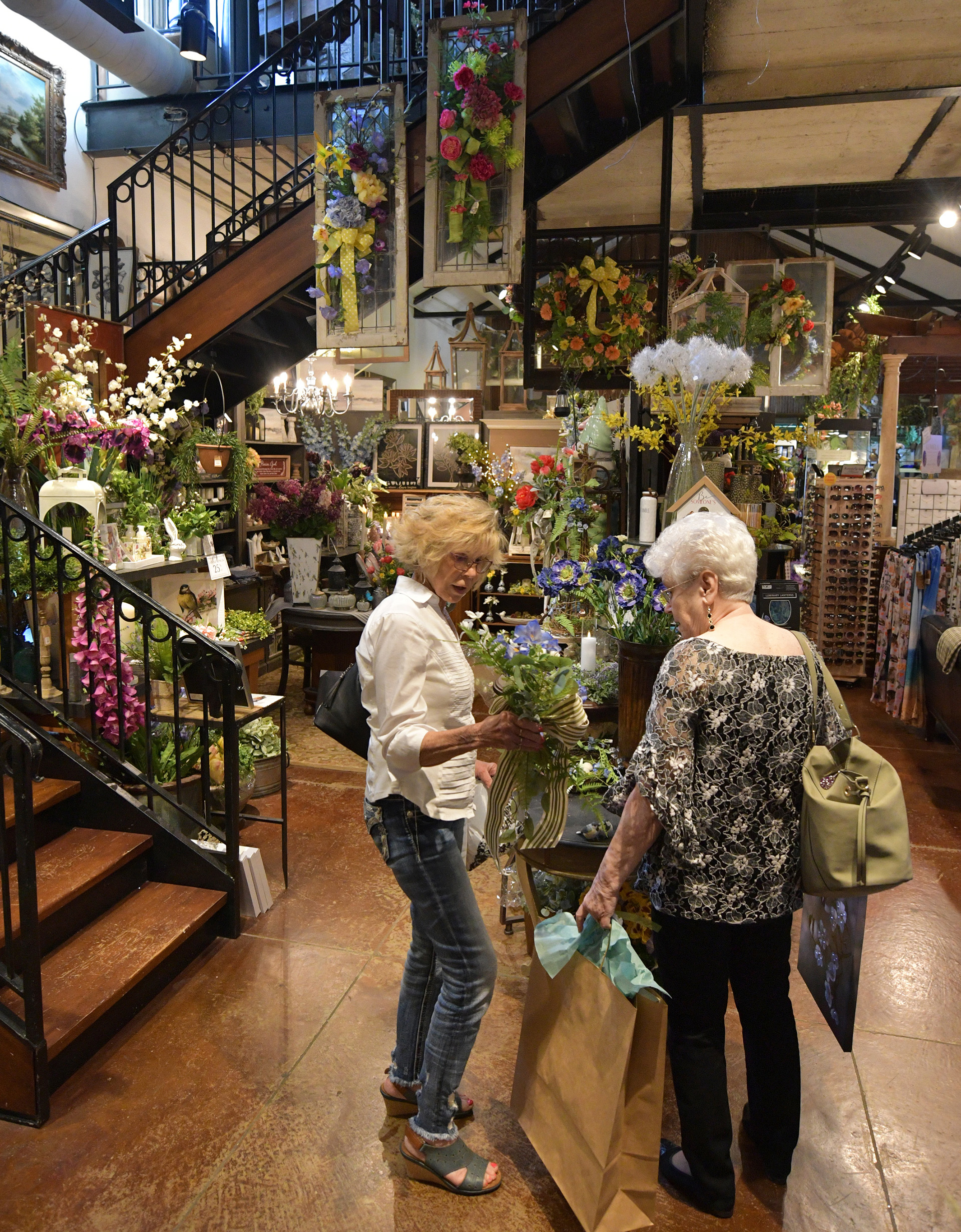
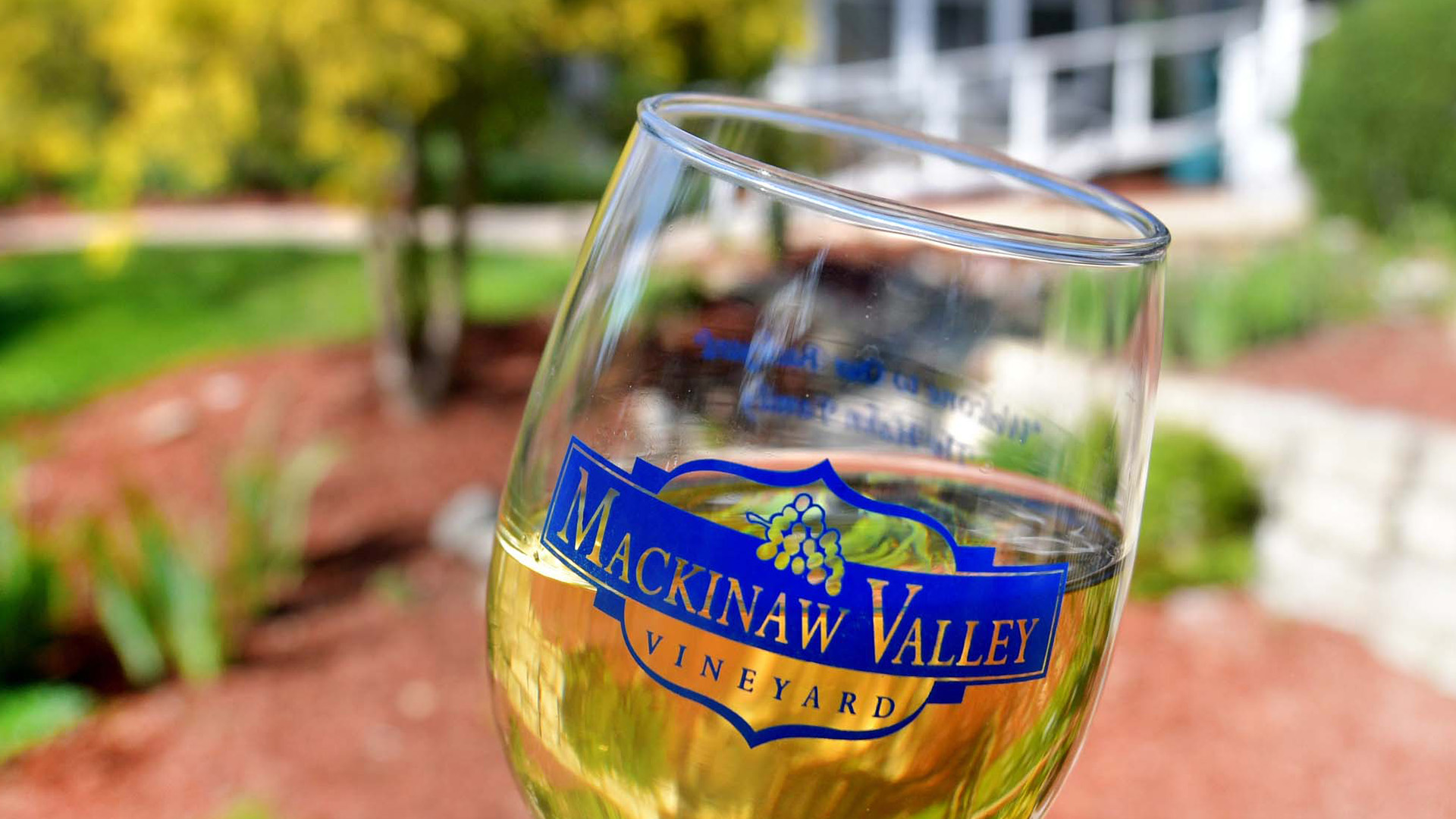
‘We can’t take for granted what we have … If you know the benefits of a small town, you’re going to move here’
— Mayor Josh Schmidgall
Beth Wiegand purchased and restored the derelict building, which is listed on the National Register of Historic Places, in 1997. Intuition told her that if she built it, they would come. She was right. Diners and shoppers have been arriving steadily, some from as far away as China and Russia, for 25 years.
“Not a day goes by that we don’t see someone who has never been here before,” Wiegand said. Chicken salad and coconut pie are specialties at the tearoom, and diners can browse the Garden Gate gift shop.
Wiegand also runs BethAnn, a clothing and jewelry boutique just across the street from the depot.
“Mackinaw is a great little town to be in,” Wiegand said. She toys with the idea of expanding, but for now, “we just want to be here and provide a great place for people to come to have lunch, spend time together and make memories.”
Out Among the Vines
East of town on Illinois Route 9 is the Mackinaw Valley Vineyard and Winery, yet another destination in an idyllic rural setting where grapes are grown and award-winning wines are crafted for local consumption and regional distribution.
Established by the late Paul Hahn in 2003, the winery has attracted thousands and been the setting for weddings, festivals, grape stomps, murder mysteries and musical performances.
“We are very much a regional draw,” said Diane Hahn, who came on board when she married Paul in 2006. “I feel like there are a lot of reasons to come to Mackinaw. We try to promote each other.”
Wildlife and Recreation
Just north of town lies the 1,448-acre Mackinaw River State Fish and Wildlife Area, a quiet sanctuary for canoeing, fishing, hiking, hunting and hand trap shooting. Kayaks and canoes can be rented at Area 52, also a longtime destination for paintballers, in the Mackinaw Industrial Park.
Residents and visitors also enjoy Westwood Park with its large pavilion, disc golf, basketball courts and soccer field. Veterans Park serves as a town center at the intersection of Main and Fast Streets, complete with bandstand, veteran’s plaza and a 3-inch, 50-caliber battleship deck gun. Once a barren gravel pit, Brock Lake along Route 9 has been developed into a popular fishing spot complemented by baseball, softball and football fields.
The Small-Town Experience
The primary/junior high school (grades K-3 and 7-8) is just south of the business district, while fourth- through sixth-graders attend classes in nearby Deer Creek. Mackinaw and Deer Creek high schools consolidated on a Mackinaw campus in 1948. Hand-painted signs around town with messages such as “Talent wins games” and “Faith. Family. Football” illustrate the integral role the schools play in local life. The Dee-Mack High School Chiefs were Class 2A state football champions in 2016.
All of the schools draw from Heritage Lake, a 1,500-resident private development — some call it a suburb — around an 85-acre man-made lake east of town.
When first-term Mayor Josh Schmidgall reflects on the amenities that attract residents and visitors to his hometown, he is the first to admit that “we can’t take for granted what we have.
“If you don’t promote businesses, before long you’re going to look up and say, ‘There’s nothing left here.’
“People come here for good schools,” he said. “What can we do to support the schools? We have great sports programs for kids. What can we do to help maintain that?
“If you know the small-town feel and you know the benefits of a small town, you’re going to move here,” Schmidgall said. “I can tell you about it, but if you haven’t experienced it, you won’t know what I’m talking about.”
Correction: The original version of this story had Paul Hahn’s first name wrong. He opened Mackinaw Valley Vineyard and Winery in 2003.



